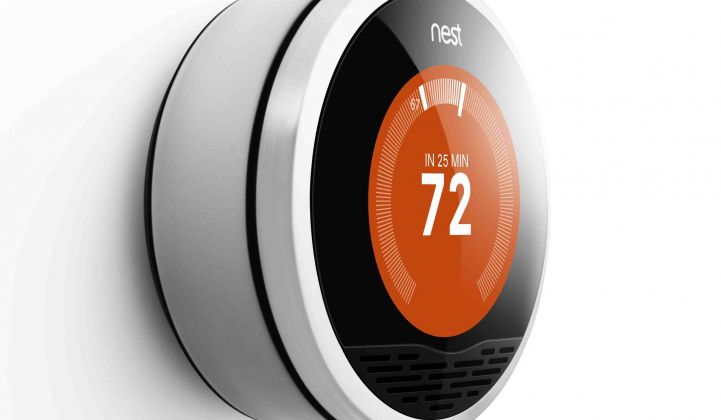Competition between Nest and Apple in the smart home market is intensifying. Apple says it will no longer sell the Nest thermostat online or in its stores.
The move could be an advantage for ecobee, the company that makes the first thermostat available on Apple’s HomeKit platform. The ecobee 3 sells for $249 -- a similar price point to the Nest. The thermostat also works with Apple Watch.
Since the Nest thermostat is not compatible with HomeKit, Apple will be removing it permanently from its catalog of products, as reported by Mashable. Other Nest products, such as its smoke alarm, will still be available through Apple.
Thermostats, however, are often the first product consumers purchase as they consider intelligent devices for the home.
Apple did not comment in detail on the decision, saying only, "We regularly make changes to our merchandising mix."
Nest reacted in a very diplomatic way: "Apple is a valued partner to Nest and our new products will be available through Apple in the coming weeks."
Just a few years ago, before Google purchased Nest for $3.2 billion, Apple was one of the first outlets to sell the learning thermostat. The device was created by former Apple engineers, who made use of the company's simple and user-friendly design philosophy.
But much has changed since Nest hit store shelves in 2011. The smart home sector is finally becoming a market -- largely driven by thermostats. Last year, more than one-third of broadband households said they plan on buying a smart-home device, according to Parks Associates. Intelligent two-way digital thermostats will make up more than half of all thermostat sales by 2016.
A wide variety of companies are looking to cash in on this burgeoning market, including energy providers, telecoms, internet providers and technology companies. For now, the technology landscape is still scattered. Many products are still seeking Apple's certification to be labeled "Works With HomeKit" and "Works With Nest."
Apple’s removal of the Nest thermostat is another sign that competition in the space is getting more heated. In another example, Alarm.com, one of the largest smart-home providers, went public earlier this year to compete more aggressively against smart-home players like iControl, Nest and Apple.
Apple's decision comes at a time when retail sales are increasing, and as such, the availability of thermostat brands at large stores is crucial. The retail market for thermostats has grown considerably since 2013; it now makes up the largest percentage of thermostat sales.
Utilities are another crucial outlet for smart thermostat providers. This is an area where Nest has gained traction through bring-your-own-thermostat demand-response programs.



